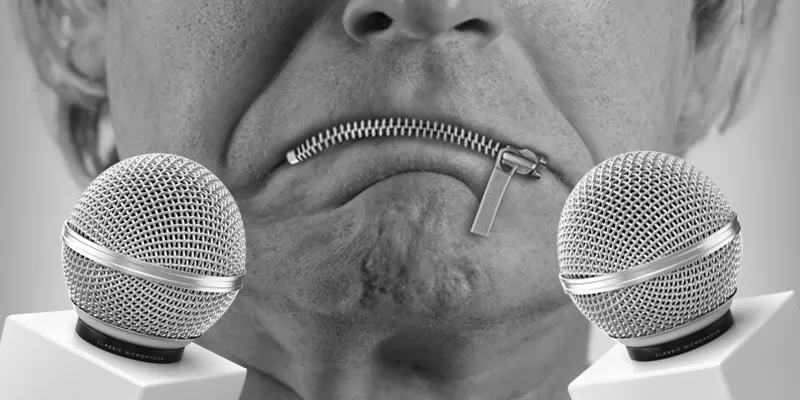Never say these things to a journalist
We all have some amount of apprehension when it comes to dealing with media outlets. In this digital age, mass communication goes well beyond newspapers and television. While social media and its many trappings are best saved for another article, let’s talk about how you can present yourself and your business in the best light.
This is not going to be an article on how all journalists are looking for juicy headlines, how they have no morals and all the journalist-bashing that has been done before. Instead, this is going to tell you how to approach another working professional who is out to do their job. When you have a huge announcement to make or when you’re asked for a snippet at a conference, here’s what you shouldn’t say and do:

Image : shutterstock
Don’t quote a book, author or personality you cannot remember
It just shows that you’re careless. Indeed, if you remember the advice so well and practice it often, why you don’t remember who said it and where? It projects you as someone with no attention to detail and no sense of preparedness.
Don’t falter with numbers and figures
If you’re going somewhere you’re sure to meet someone from the press, be prepared to answer questions by giving the right facts and statistics. These are going into print and several people will read them, so make sure you have it right in take one itself. After all, no one reads the corrections section in newspapers.
Don’t say ‘no comments’
This is especially true if you’re a businessperson in the public eye. Don’t ever answer this way, even in the trickiest of situations. Sensitive issues in the legal domain, mergers, acquisitions and news of funding need to be handled with extra care. How you present it may make all the difference between a good story and a story that pulls you down.
Don’t insult the person interviewing you
This includes comments on the person, their clothing, their mannerisms or anything at all that might offend or insult them. As long as they’re being professional, don’t say anything that could come across as harassment. If you’re uncomfortable with a few questions, you can say so. Do not upset journalists as they could write about it if they wanted to.
Don’t ever try to bluff
In the heat of the moment, you may talk about, say, expansion plans you don’t actually have. If you’re particularly out of luck, you may find it becoming a headline. This is why having a media kit can help.
Instead of saying what you don’t want to, it helps immensely to turn up well prepared to a media event. Likewise, try avoiding blanket statements that don’t really mean anything. If you’re a startup trying to pitch to the media, some of these tips might help.







